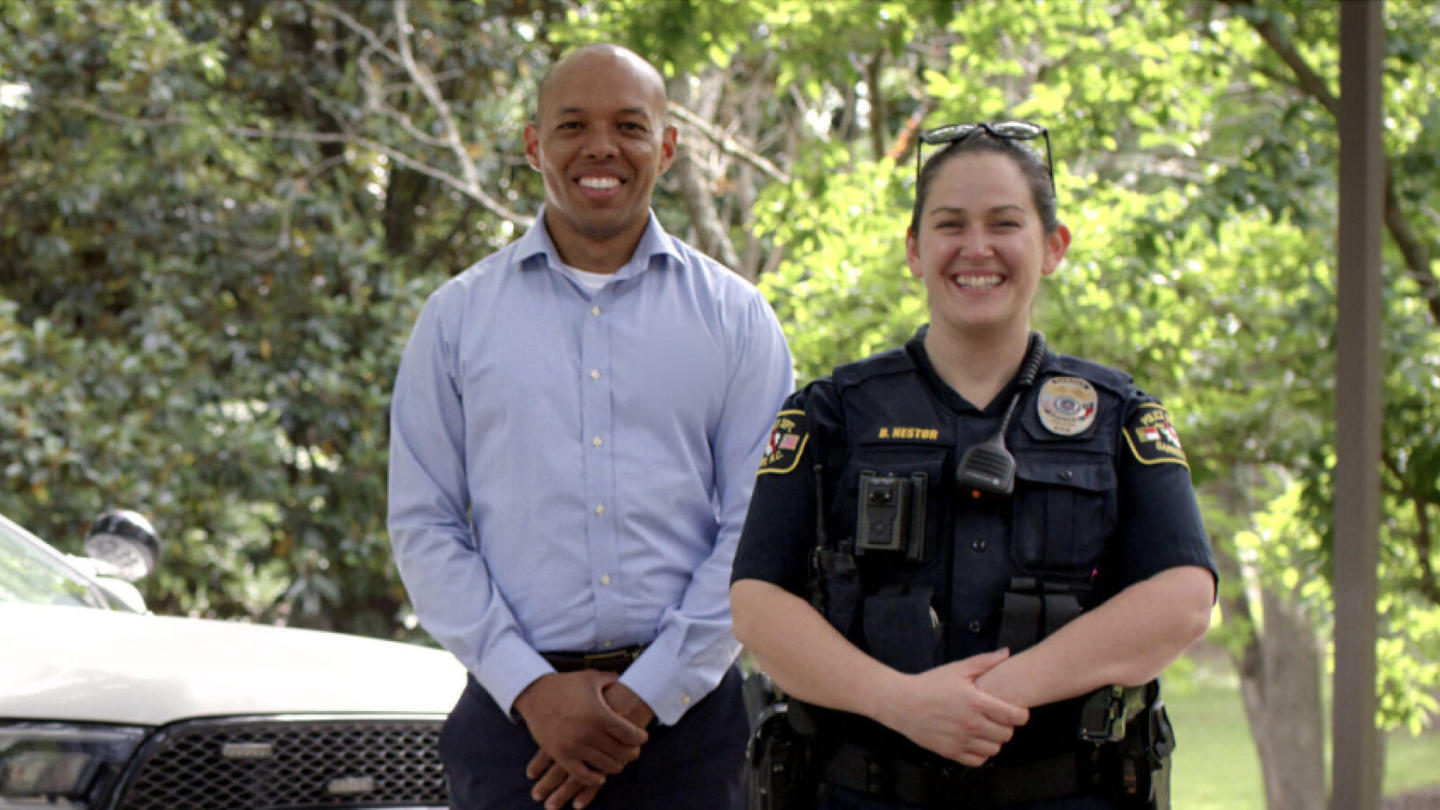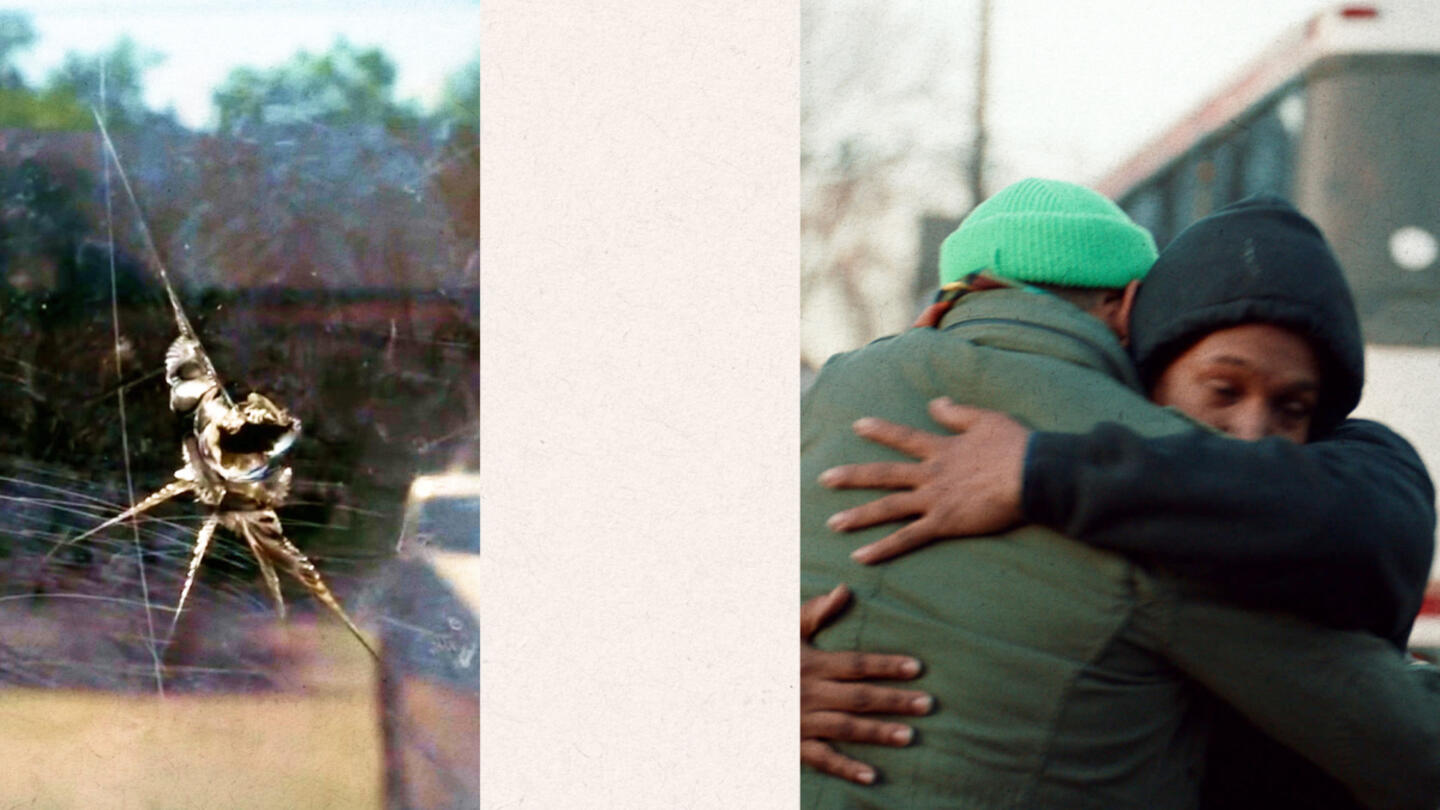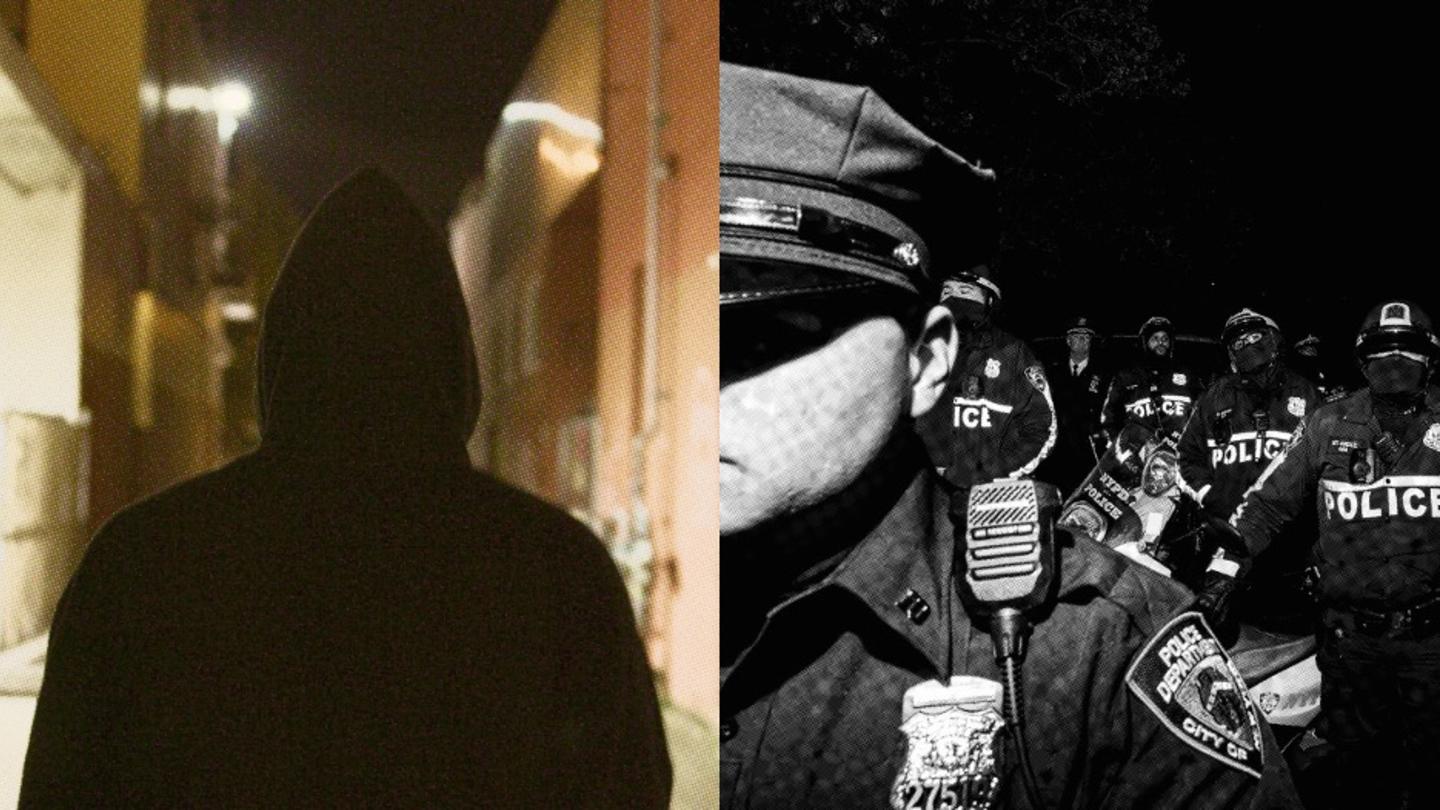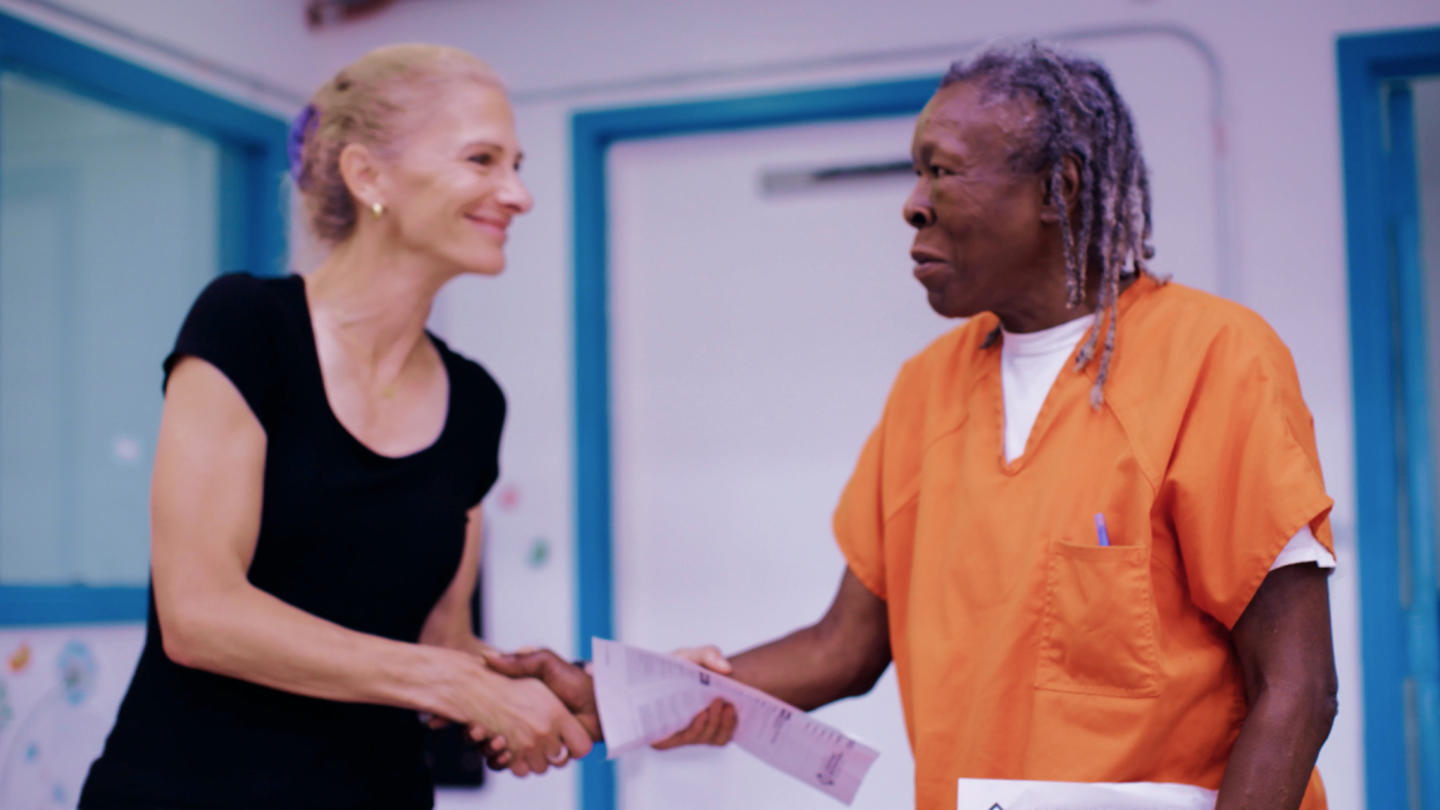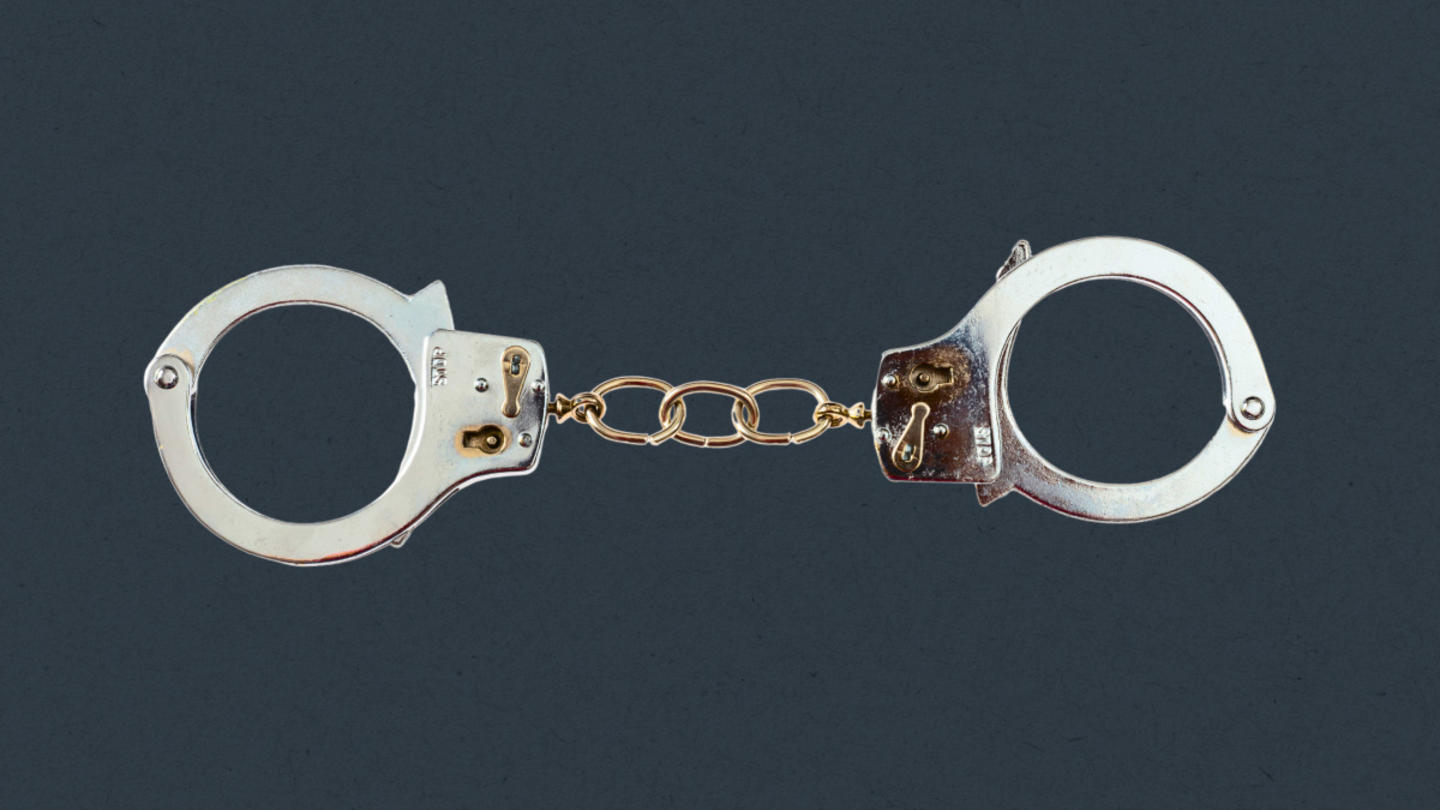Andy Saunders watched the murder of George Floyd in horror. As a former police officer, he knows many of his colleagues are on the streets doing good work every day. But he also recognizes that poor police community relations can often be boiled down to a lack of trust – and that police officers have a critical role to play in building it back.
Together with friend and colleague Brittany Nestor, Saunders started New Blue to address this pervasive trust issue. They started with a question: What can we do to heal the divide between police officers and their communities?
They knew the answer would ideally come from inside police departments, from the very officers who want to make connections and build that trust and work with their communities. They knew it wouldn't be easy. Research shows that less than half of Americans trust the police — and only one-quarter have a great deal of trust. New Blue is first and foremost about rebuilding that sense of corroded trust between police and their communities.
New Blue is a year-long fellowship that offers funding, classes, and networking opportunities to police officers interested in connecting with their communities and reforming police culture from within. Officers joining the program are each creating a specific solution to a problem in their community, and New Blue works with them to help implement that solution. Every year, a new cohort of officers from around the country implement, analyze, and share their solutions.
Officers from the first cohort remain in touch and continue to share ideas. All report that the program has been a success within their departments.
Stand Together spoke with Andy Saunders about New Blue's origins, its first year, the role of trust and legitimacy in public safety, and his hopes for the future of the nonprofit.
Stand Together: What are the origins of New Blue? And how does it improve police community relations?
Saunders: We're trying to change the narrative around policing. Our whole theory of change is based on the idea that there are good police officers who are also fed up with what's happening in our country.
Brittany Nestor and I founded New Blue after the murder of George Floyd. We wanted to identify the policies, practices, and procedures leading us in the wrong direction.
New Blue identifies officers who are willing to say, 'I want to create change, and I'm going to use my perspective from doing this job day in and day out to name the policies and procedures that are holding us back. And I want to do that alongside my community.'
Some New Blue officers engage in open conversations when they respond to calls that don't seem violent or dangerous or even criminal. Have you seen this work in terms of building trust with the community?
Yes. When community members see that law enforcement is paying attention to their needs, it builds trust. And it benefits police officers as well. It's part of the investment in people. If you can figure out someone's needs and provide that to them post-release, then in theory, they will not be arrested again. For example, in Evanston, Illinois, the majority of arrests are re-arrests. Police officers are regularly encountering people they know.
How does that change resource allocation and tax dollar spending? What is the social impact of your resource allocation within a municipality if you don't have to rearrest the same people? That's where departments are eager to get on board.
How do you balance police community relations in a way that also increases public safety?
In this regard, we relate trust and legitimacy together. There are three ways trust and legitimacy increase public safety, and they're all backed by research.
If you believe that the police are here to do a service for you, and that they're going to help you, you're more likely to cooperate. That could look like simply saying, 'hey, the bad guy's over there.' Information sharing is essential. Policing is not like CSI, where the police can solve the case from a strand of hair that they find on the ground. Most cases are solved by knocking on doors, talking to community members and hearing what leads and tips they have. So trust leads to stronger communication, and the community is safer for it.
The flip side to that is that citizens are more likely to report crime when they trust the police. If you think the police are going to come and do harm to your community, you might just live with that break-in or that broken window or that stolen bicycle. There have been studies that found trust is important for reporting crime.
The last piece is on use of force. When police officers arrive on a scene, and say, 'I'm here to do X, or I'm here to see Y because of Z,' people view the police as much more trusted. Oftentimes, that's not how officers are trained to approach situations. They don't over communicate. But when people view police as fair and legitimate, they're more likely to not be violent. Deescalation starts by calming the situation before it can escalate.
If police are more trusted, they will be in fewer situations where they feel threatened by the community because the community doesn't feel threatened by them. And that makes the community safer for everyone.
When it comes to police reform, are you using any other resources to help officers learn and take what's working in one city to apply it in others?
We've hired two researchers to work with fellows to design everything in a way that can be studied and replicated over time. Then they'll publish these reports. Last year was our start-up year; now we're formalizing that process. These two researchers helped us choose our 2023 fellows so that they can choose the most promising solutions that we'll invest in and bring to market.
How do you select officers who are interested in improving police community relations?
We've been very diligent about our selection process to try to find the right mindsets. Are you from the community that you want to serve? Are you willing to give us one or two things that you think your department is doing wrong? These are early indicators that somebody is ready to have a reform mindset.
Were any officers hesitant about applying or did they have concerns over the phrase "police reform"?
Some officers have great ideas and they know what's going wrong. But these are just not things you would talk about in a roll call meeting or in front of a group of officers. These might be the things you only bring to your partner who you're in the car with night after night, and you feel safe and trusting with that person.
But the culture really prevents these conversations from happening at scale. In our interview process, we tell them we're not telling anybody what you say. So you can tell us about the biggest challenges facing your community in terms of policing. And many of them do. Three months into the fellowship, they start to trust their peers from across the country. That's where the real conversations start to come out, but it takes a lot to say these things.
Can you share any success stories about building trust between the police and community from the first year?
One of the courses we offer is on navigating supporters and detractors. When someone says, 'this is a bad idea' or criticizes them as having a 'change the world-type of mentality,' they have to navigate the pushback.
Part of their project involves presenting their idea to their chain of command and other officers in a way that is well-received. A really good example is one officer who was told 'no' by their supervisor. After a deeper conversation, the supervisor said, 'fine, it's still no, but you can present this to the union because they're going to say no.' We helped the officer design a presentation and practice and prepare. The union said yes. Now it's implemented into policy and the officer has actually created change there. Without New Blue, there wouldn't have been a yes. With our support, they were able to push forward.
What are you ultimately hoping to accomplish with New Blue and this approach to police reform?
We're looking for solutions that enable citizens and police to work together. Topics include restorative justice, arrest reduction, compassionate policing, diversity, and recruitment. And they all fall under the umbrella of trust.
New Blue is supported by Stand Together Trust, which provides funding and strategic capabilities to innovators, scholars, and social entrepreneurs to develop new and better ways to tackle America's biggest problems.
Learn more about Stand Together's criminal justice efforts.
